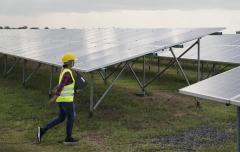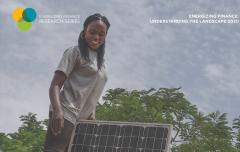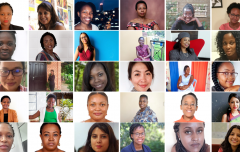Editor's pick: From jobs to gender equality – why it’s vital we back energy access skills
By Harriet Lamb, Ashden CEO
Among the many pathways to a low carbon world, one track is too little trodden: training up a generation of young people with the skills for clean energy. Every time someone learns how to fix a solar panel or assemble a cookstove, we are one step closer to the future we want. What’s more, we are one step closer to tackling a scandalous global failure – that almost one billion go without access to electricity, and three times as many go without safe cooking fuels.
The opportunities ahead are enormous. By 2023 the decentralised renewable energy sector could provide 210,000 direct, informal jobs in India, 30,000 in Kenya, and 24,000 in Nigeria, Power for All reports. But only if countries develop the workforce to fuel this energy revolution.
The benefits of widening green skills go far beyond lowering emissions. Initiatives can also support a just transition, by retraining workers in polluting fossil fuel industries or creating employment in countries with fast-growing youth populations.
So as well as tackling climate change, investment and smart policymaking can deliver huge social and economic benefits – including progress towards gender equality, if efforts are made to reach out to women.
Ambition and impact: trailblazing work in Togo, Kenya and India
In Africa, pioneering governments are taking on the energy access challenge with bold national plans – including action on skills training.
Among the frontrunners is the Togolese Rural Electrification Agency, which aims to achieve universal energy access in the country by 2030 – an ambitious target, given that in 2017 access was just 8 percent in rural areas. The agency’s systemic approach takes in subsidies, clever integration with mobile banking, public-private partnerships – and a clear focus on building skills.
In recent years, 3,000 local technicians have been trained and certified to install, maintain and fix solar systems. Meanwhile, 3,000 people have been trained and certified as mobile banking agents – essential to the successful roll-out of solar solutions.




